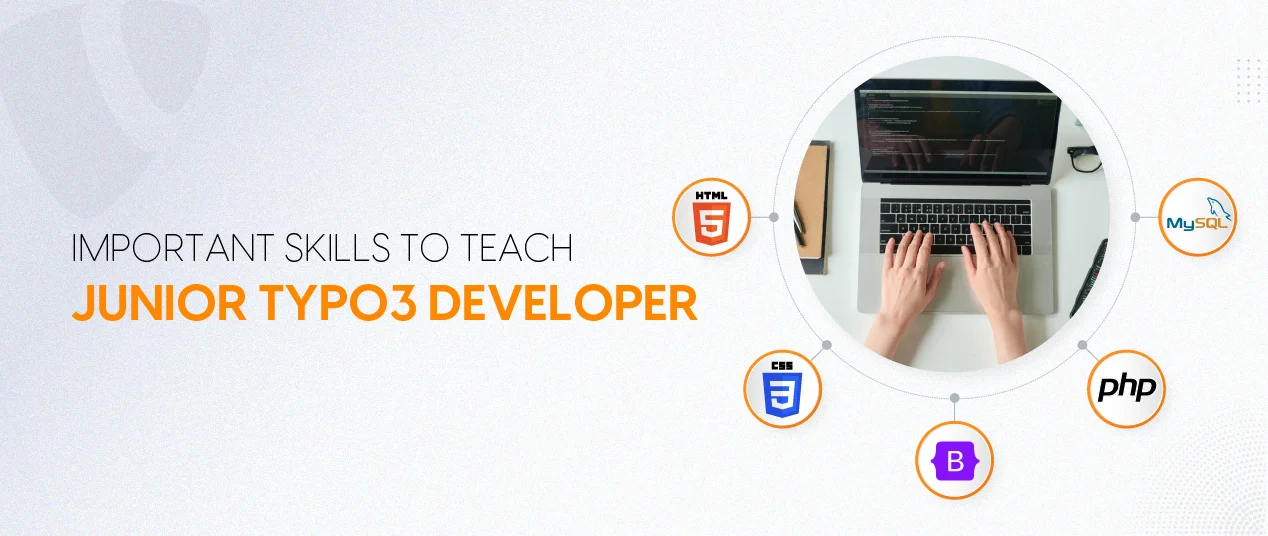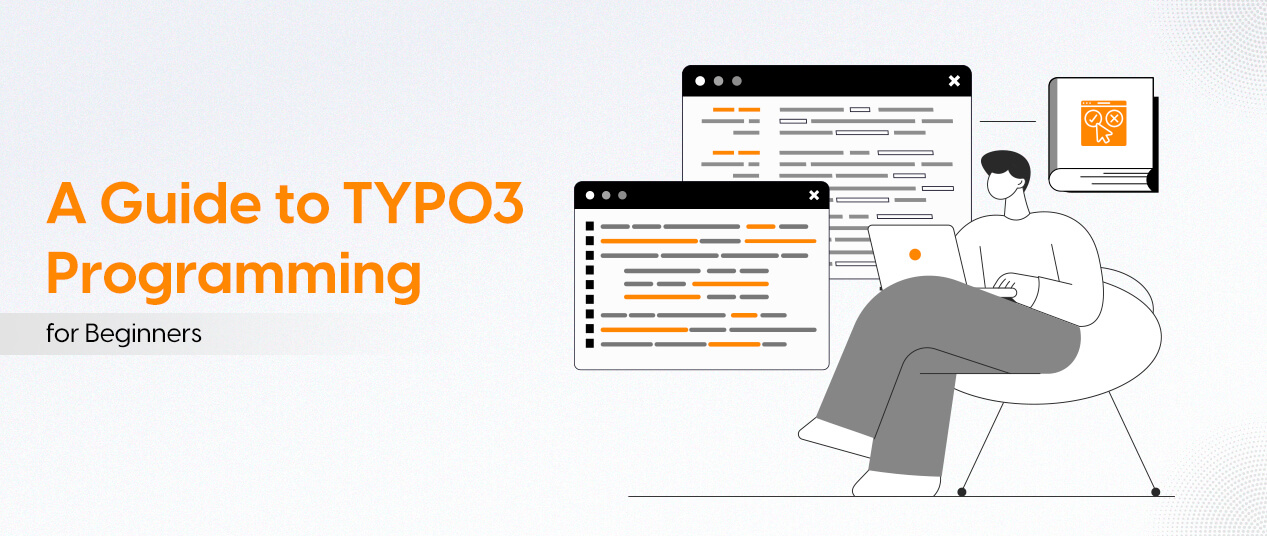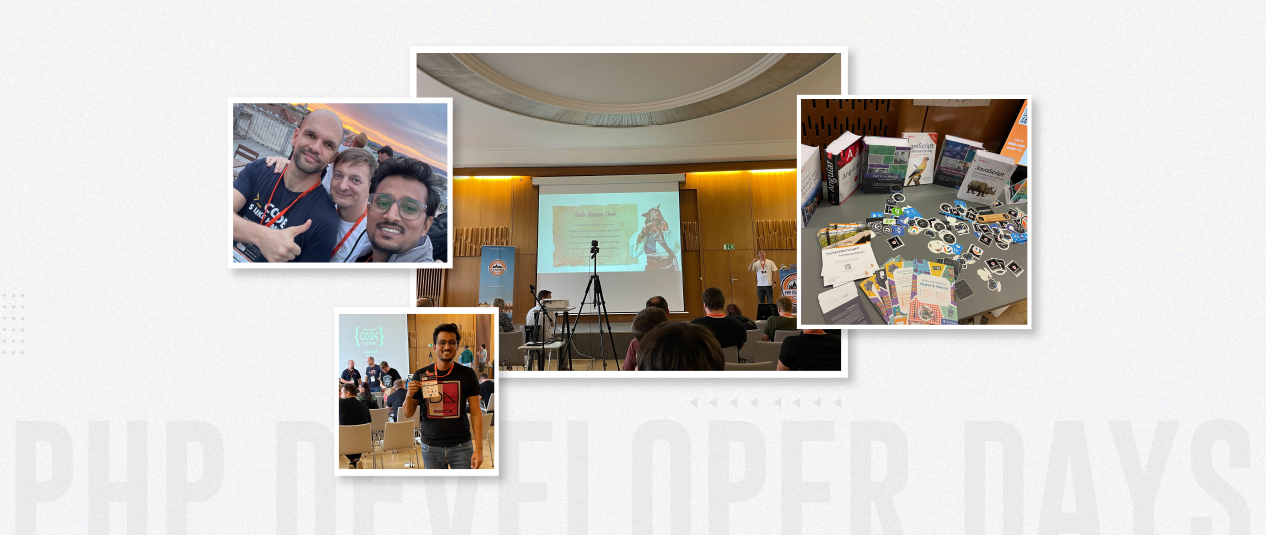However, for anyone who is new at something, there’s always a risk of making mistakes. So what are the most important things that a TYPO3 developer needs to learn before taking on website projects?
We recruit 8-12 TYPO3 developers at NITSAN per year and educate them to work for our TYPO3 Agency partners, so we know first hand what they need to know and what mistakes they usually make.
What all Junior TYPO3 Developers Should Know?

Anyone calling themselves a junior TYPO3 developer should know HTML and CSS, some basic PHP, and how TYPO3 works. That’s a given, and people who apply to our Junior vacancies already know these things.
In addition to the basics above, there are more things they need to know about TYPO3 Fundamentals
TYPO3 Fundamentals
Following are a must very basic skills to be able to start building a custom TYPO3 project from design files.
- HTML/CSS
- PHP
- JavaScript knowledge
- Object-Oriented Programming
- The Loop
- TYPO3 terminology (Template, Pages, Storage folder, Plugin, flex form, etc...)
- TYPO3 template hierarchy
- TYPO3 functions
- TYPO3 Admin navigation etc
- TYPO3 default features/functions
- TYPO3 default elements & default extensions
- TYPO3 Custom Content Element
- Default User Roles & Responsibilities
TYPO3 Frameworks, TYPO3 Extensions, & Libraries
Technically, if a developer has a good understanding of TYPO3 Fundamentals they can work on a custom TYPO3 project entirely from scratch. And it is recommended that all developers try that for at least one simple site in order to get a complete understanding of how TYPO3 works.
TYPO3 Frameworks
Frameworks are the base that TYPO3 themes are built on and range from very light to feature-packed. We use popular frameworks like Bootstrap, Foundation, Materialize, etc for most projects. Having proper knowledge and experience of frameworks is a must.
Moreover, to initiate learning about TYPO3 templating methods as TYPO3 fluid, TemplaVoila, Auto-Parser is also important.
TYPO3 Extensions
TYPO3 extensions extend the functionality of the TYPO3 website. Each agency will have its own set of TYPO3 extensions that they typically use site to site, but the common TYPO3 extensions knowledge must be there. We teach and expect our junior developers to master popular TER extensions,
- 15 Best TYPO3 Extensions For Integrators
- Top 10 Popular TYPO3 Extensions For Developers
- 10 Awesome TYPO3 Extensions For Editors
Code Libraries
Yes, especially JavaScript libraries, can be very useful for junior web developers to achieve animations and other effects on websites. JavaScript is a much more advanced topic so it is important that a junior developer is aware of the possibilities but not spend too much time during this initial education period diving into JavaScript details.
Understanding TYPO3 Web Designing

Well, here we have focused on custom TYPO3 development from design files, like Adobe XD, Photoshop, or Sketch files.
An experienced developer will most often understand the project by looking at the design files. For junior developers, however, there are several things they need to learn to read the web designs correctly. For example:
- Finding typography settings Font family, font size, line height, paragraph spacing, bullet-list design, etc. all need to be set up correctly.
- Understanding heading hierarchy Text isn’t only about styles, it’s also important to set headings to H1, H2, etc.
- Measuring the padding between elements.
- Proper exporting of assets from design programs to be used in the build.
- Identifying and working with layers to be able to distinguish images versus image effects.
Clients usually explain all design elements to the junior TYPO3 developer for the first few websites, but that is not always possible. This is why it is important that the developer write down any questions or clarifications regarding the design and clear them before the project planning stage.
Project Building Fundamentals (the fun part!)

After all design files and requirements are clear then the developer needs to actually sit down and code the website. For our developers the following knowledge is required to do so:
- Setup of an IDE (Integrated Development Environment): We have used PHPStorm from the beginning with all our developers, but they can also use Sublime Text, Notepad++, or any basic text editor.
- Access and familiarity with the server the site is to be hosted: A local environment can also be used for the initial build. The junior developer must know the step-by-step instructions for setting up a local environment.
- Familiar with FTP/SFTP clients: In order to install TYPO3 and the required assets.
- MySQL: For database management.
- Ability to implement TYPO3 fundamentals: To set up all the template files, register post types, adjust plugin settings and code The Loop to pull it all together in the right order to match the provided designs.
- CSS adjustments with correct media breakpoints: To ensure correct responsive behavior.
- Basic UNIX commands: To support multitasking and multi-user functionality. Knowledge of UNIX commands should be there. One should know the Unix commands for cases where a GUI is not available.
Overall Quality Self-Check

Being a developer it is important to double-check their work to make sure all requirements are covered with the best quality before delivery. The main areas that a junior developer should focus on are:
- Design/Layout review: Does the website look the same as the design files?
- Functional recheck: Reading all requirements and making sure that code updates in one place did not break something in another place.
- Responsive views are correct: Checking with both browser development tools and real mobile devices when possible.
- Cross-browser check: Any adjustments needed for Safari, Chrome, or the dreaded Internet Explorer? Code formatted and commented in a clean way that others can review and understand.
And that’s it
Being a TYPO3 developer is a feeling of pride! Whether you are interested in developing yourself or interested in including a junior TYPO3 developer on your agency’s team, success can be achieved through clear expectations, open communication, and regular review but most importantly with being master in the above listed TYPO3 skills.
Do you have any questions? How was your experience as being a junior TYPO3 developer? Let us know in the comments below.
Good luck! Happy TYPO3 Learning!

Contact for project management and team coordination
Mihaela Angelova
Project Manager - Germany





Be the First to Comment